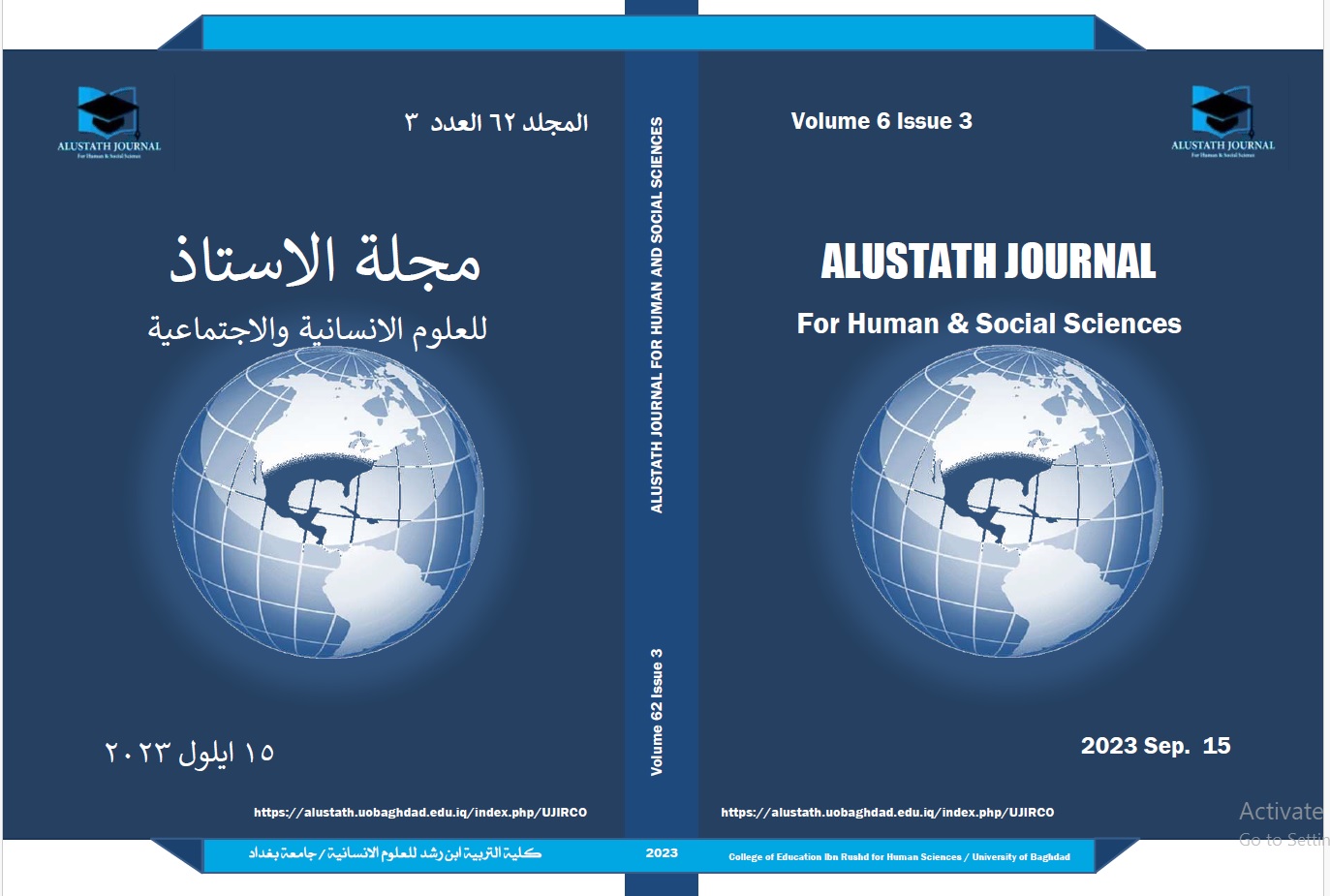A Psycho-Traumatic Analysis of Two Post-Modern Plays: Julie Myatt’s Welcome Home Jenny Stutter and Christopher Shinn’s Dying City
DOI:
https://doi.org/10.36473/ujhss.v62i3.2206Keywords:
: traumatic theatre, trauma, traumatic theory, flashback, alienationAbstract
Due to the intense and detrimental effects that war has not just traumatized military personnel who have served in the military of their home nation, particularly throughout wars, as well as on a whole warring society, the theme of trauma has become increasingly prevalent in the American scene over the past forty years. This has prompted many relevant playwrights to record and depict the negative out comes of war and its disastrous effects not only on the militants after coming back home but also on the civilian population. Playwrights have explored the terrible effects of war, the challenges that survivors confront after the war, and the origins of trauma in their plays in order to highlight the trauma's causes and develop treatments for the hazardous mental disorder of war trauma. The two American post-modern plays Welcome Home Jenny Stutter by Julie Myatt and Dying City by Christopher Shinn will be examined and their major characters' psyches will be analyzed. The research concludes that there are certain symptoms that appear on the main characters in the plays such as alienation, insomnia, fear, depression, insecurity, and flashback.
Downloads
References
• Aristotle. 1961. The Poetics. Trans. Francis Fergusson. New York: Hill and Wang.
• Artaud, Antonin, and Mary Caroline Richards. 1997. The Theater and Its Double. New York: Grove.
• Bogart, Anne. 2010. A Director Prepares: Seven Essays on Art and Theatre. London: Routledge.
• Brantley, Ben. 2007. The Walking Wounded Who Never Saw a Battlefield. Available from:https://www.nytimes.com/2007/03/05/theater/reviews/05dyin.html.
• Brantley, Ben. 2019. Review: Doubling Up on Toxic Manhood in ‘Dying City’. The New York Times. Available from:https://www.nytimes.com/2019/06/03/theater/review-doubling-up-on-toxic-manhood-in-dying-city.html.
• Duke, Harry. 2018. “Welcome Home, Jenny Sutter” at Santa Rosa Junior College. Available from:https://www.sonomacountygazette.com/sonoma-county-news/review-welcome-home-jenny-sutter-at-santa-rosa-junior-college/ .
• Fischer, Mike. 2014. In Next Act's 'Welcome Home, JennySutter,' war vet takes long way home. Available from:https://archive.jsonline.com/entertainment/arts/in-next-acts-welcome-home-jenny-sutter-war-vet-takes-long-way-home-b99350899z1-275885201.html/.
• Frye, Northrop. 1957. Anatomy of Criticism: Four Essays. Princeton: Princeton University Press
• Gellrich, Michelle. 1988. Tragedy and Theory: The Problem of Conflict Since Aristotle. Princeton: Princeton University Press.
• Hanly, Charles. 1992. The Problem of Truth in Applied Psychoanalysis. New York: Guilford.
• Herman, Judith Lewis. 1992. Trauma and Recovery. New York: Basic.
• Horowitz, Mardi J. 1976. Stress Response Syndromes. New York: Jason Aronson.
• Janet, Pierre. 1925. Psychological Healing a Historical and Clinical Study. Trans. Eden Paul and Cedar Paul. Vol. 1. New York: Macmillan.
• Kaehler, Laura A., and Jennifer J. Freyd. 2009. "Borderline Personality Characteristics: A Betrayal Trauma Approach." Psychological Trauma: Theory, Research, Practice, and Policy.
• Lucas, F.L. 1962.Tragedy: Serious Drama in Relation to Aristotle’s Poetics. Revised Edition. New York: Collier Books.
• Mandell, Jonathan. 2019. Dying City Review. New York Theater. Available from: https://newyorktheater.me/2019/06/03/dying-city-review/.
• McNulty, Charles. 2013. Review: ‘Dying City’ is a mesmerizing look at the battles within. Los Angeles Times. Available from: https://www.latimes.com/entertainment/arts/la-xpm-2013-may-21-la-et-cm-dying-city-review-20130521-story.html.
• Morgan, Scott. 2012. Welcome Home Jenny Sutter: Theater Review. Windy City Times. https://www.windycitytimes.com/lgbt/Welcome-Home-Jenny-Sutter/40589.html.
• Moriarty, Michael. 1989. “Principles of judgement: probability, decorum, taste, and je ne sais quoi.” The Cambridge History of Literary Criticism. Ed. George A. Kennedy. Vol. 3. Cambridge: Cambridge University Press.
• Mufson, Daniel. 1999. Reza Abdoh. Baltimore: Johns Hopkins UP.
• Myatt, Julie. 2015. Welcome Home Jenny Sutter. United Kingdom: Samuel French.
• Noth, Dominique. 2014. “Welcome Home, Jenny Sutter” Offers Poignant Look at Veteran’s Return. Urban Milwaukee. Available from:https://urbanmilwaukee.com/2014/09/22/review-welcome-home-jenny-sutter-offers-poignant-look-at-veterans-return/.
• Romanska, Magda. 2012. The Post-Traumatic Theatre of Grotowski and Kantor: History and Holocaust in Akropolis and Dead Class. London: Anthem.
• Scheck, Frank. 2019. ‘Dying City’: Theater Review. The Hollywood Reporter. https://www.hollywoodreporter.com/lifestyle/lifestyle-news/dying-city-theater-1215249.
• Shinn, Christopher. 2007. Dying City. New York: Lincoln Center Theater.
• Steiner, George. 1963. The Death of Tragedy. New York: Alfred A. Knopf.












